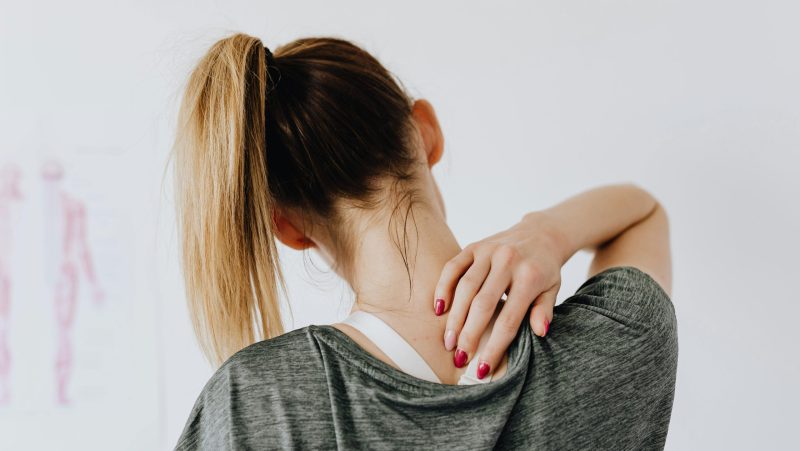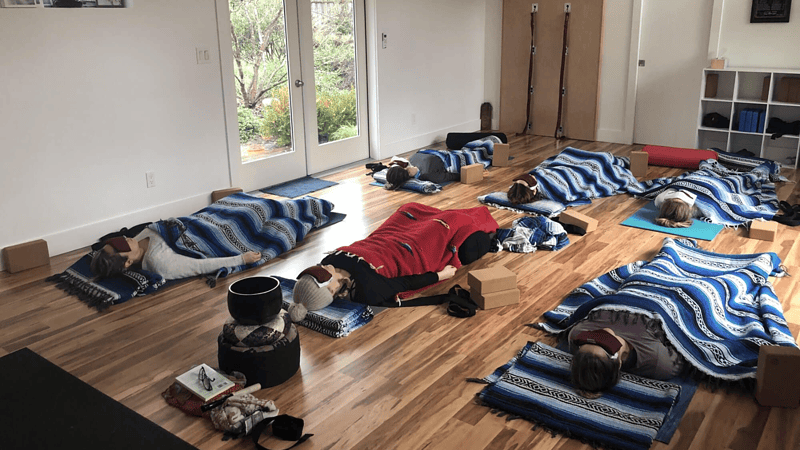
Could your PMS Predict your Experience in Perimenopause?
Troublesome Periods Now? They Could Predict Your Menopausal Experience – Here's What You Can Do - By Siobhan Carrol
Reading time: 4 minutes
How troublesome periods could be a sign of things to come!
Could PMS be a sign of a tricky menopause to come? A.Vogel Medical Herbalist Siobhán Carroll discusses some of the evidence behind this and what can be done to help.
Research suggests that women who suffer each month at the hands of PMS, may be more likely to have a worse time of things as they approach perimenopause and menopause in later life. Here I discuss some of the evidence behind all of this and explore what can be done to help before it’s too late!
If you have PMS in your 20s, 30s or 40s this could be a sign of things to come as you go through perimenopause. Research has found that PMS sufferers are twice as likely to experience hot flushes and mood swings going into the menopause compared to women who don’t have PMS.
Over the last couple of years menopause and perimenopause have finally got some long overdue limelight and people, businesses and even the media are talking about menopause and the impact it is having on women and society. And for the first time, women in their 30s and 40s are now regularly asking me, "what do I need to know about perimenopause and menopause and what can I do to prepare myself?"
As a women’s health naturopath, this is music to my ears! Prevention is always better than cure in my book, so I am delighted that so many women are now taking a proactive approach. I am going to discuss how getting your hormones in order in your 30s or 40s may give you a great added bonus of having a gentler transition through perimenopause. (Of course, you can get your hormones in order in your 20s but I’ve yet to hear from anyone under 30 asking me about preparing for menopause!)
Research says PMS can predict menopause
For years I have observed in my clinic that the women who experience PMS and troublesome periods in their 30s and 40s are more likely to have a difficult time in perimenopause and research also confirms this.
This research published in 2004 isn’t new but I’ve found that until recently many women just didn’t want to hear it! So, if you are reading this now, congratulations, you are part of an emerging group of women who are taking charge of their hormonal health and prepping for an easy menopause!
The 2004 research was published in the international peer-review journal Obstetrics & Gynecology Science. This study followed 436 women for five years to look at the relationship between PMS and the experience of menopause.
PMS symptoms declined significantly as menstrual bleeding became less frequent, with the likelihood of having PMS decreasing by 26% among the women considered to be in early perimenopause, and by 80% among women who were late in the transition period.
The women with PMS at enrolment were twice as likely to report hot flushes during the study period, and slightly more than twice as likely to report having symptoms of depression. Women with PMS were also 50% more likely to report problems with sexual desire and a jaw-dropping 72% were more likely to report problems sleeping.
The study’s overall conclusion was that women who experienced PMS throughout their childbearing years were at greater risk of menopausal hot flushes, depressed mood, poor sleep, and decreased libido.
Your period is your fortune-telling superpower!
While PMS may be a predictor of more problematic perimenopause, it is important to note that the symptoms that you get during your premenstrual week are not necessarily what you will experience in perimenopause. While your menstrual cycle is an amazing feedback tool and even though research shows that it can even predict your hormonal future, it’s not that good a fortune teller!
Basically, if you have PMS, it means your hormones are out of balance. And if your hormones are out of balance, you are more like to get more symptoms in perimenopause.
Hormonal sensitivity
One reason for this heaping of hormonal horror on the heads of menopausal women is that PMS is often the result of hormonal sensitivity – you’re just more sensitive to fluctuating levels of hormones than other women. Menopause is a type of immense hormonal fluctuation, so those who respond easily will feel it the most.
As we get older, the eggs that respond easily to hormonal stimulation have already matured and been released. The body needs to send more hormones to trigger the release of the less eager eggs, which means we end up with higher levels of hormones and possibly more PMS symptoms as we age as well.
Oestrogen dominance
If you find that you are suffering from very ‘typical’ PMS symptoms, including heavy, painful periods, sore breasts, water retention, mood swings and so on, the hormone oestrogen could likely be at the root of the problem - and this is what is often called oestrogen dominance. More accurately this refers to too much oestrogen relative to progesterone throughout the typical monthly cycle.
This means that when oestrogen levels eventually drop off to give you your period, the 'drop' is much more substantial. It seems that this more drastic drop-off, or fluctuation, is what’s likely to be giving rise to many of these unpleasant PMS symptoms!
Unfortunately, it’s likely that this group of women, suffering from these PMS symptoms, are more at risk of having a less pleasant menopause experience later on. Particularly in perimenopause (when oestrogen is often on a rollercoaster), if you are suffering from oestrogen excess already, then the symptoms can become heightened!
Many women report that they experience a constant stream of what could be described as PMS symptoms, but are often more severe and unpredictable; and hot flushes and a whole host of additional symptoms are often added to the mix.
How your PMS can empower you to take control of your health
So, while this might be scary if you get PMS now, it can also be really empowering! If you experience PMS now then there are lots of things you can do to help balance your hormones and get your PMS resolved.
Try Agnus castus – our remedy licensed for PMS symptoms
Agnus castus is my go-to herb for treating PMS that is associated with high levels of oestrogen, which I mentioned above. It is a licensed herbal remedy used to help relieve symptoms of PMS, including painful periods, sore breasts, bloating and irritability. It is also a brilliant remedy for heavy bleeding, which often shows up during the oestrogen rollercoaster in perimenopause.
If you are in your 20s, 30s or 40s and just want to get your hormones in balance to have a happier period now, then give A.Vogel’s Agnus Castus (avogel.co.uk) a try. You could also reap the side benefit of having an easier menopause in future! Or, if you are already experiencing the fluctuations of perimenopause including heavier bleeds and shorter cycles, then it could help you too!
A cautionary word on hormonal medications
While discussing this topic, I think it is important to highlight that the most common medical treatment for PMS at present is hormonal contraceptives. While hormonal contraceptives are a great thing for us to have access to, they are designed for contraceptive purposes and in my opinion, prescribing them for hormonal imbalance is lazy medicine. It is like putting a plaster over the flashing petrol light on your car. It will take away the warning signs your body is giving you, but will not fix the underlying issues.
So many women are put on the pill to ease their PMS, just to find that their symptoms come flooding back whenever they come off the pill. The same applies later in life when it comes to HRT – although it may be effective at relieving some of the symptoms of menopause, if/when you eventually come off the medication your oestrogen levels will drastically drop off and you risk experiencing menopause all over again as nasty withdrawal symptoms crop up!
By getting to the underlying root of your period troubles early on, rather than suppressing the symptoms with pharmaceuticals, it seems likely you could set yourself up for a smoother transition into menopause – sounds good to me!





